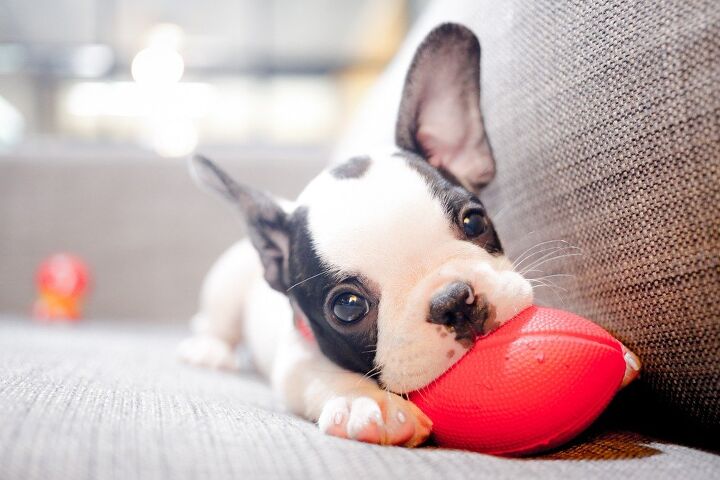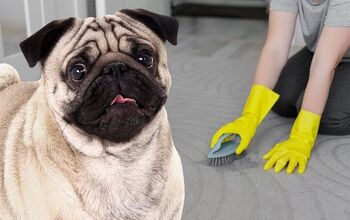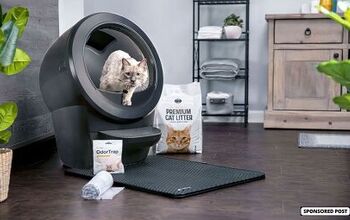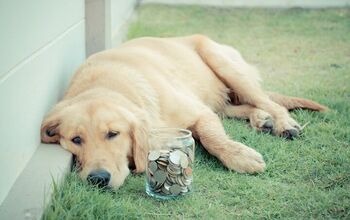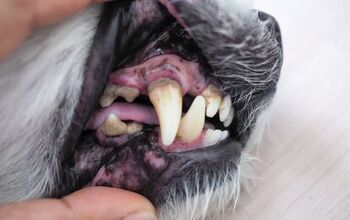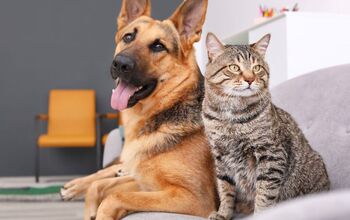Why Do Puppies Cry and Whine?

For those with a new pup in the house, there’s nothing that tugs at the heart strings as much as listening to him crying out in the night. Is he afraid? Is he missing his mother? Is he feeling cold without all his litter-mates cuddled in around him?
While it could be down to any one of these factors, odds are that he’s simply learning how to communicate and has already figured out early on that making high-pitched yipping sounds brought him instant attention from mom. And while you’ve likely considered clearing space in your bed and tucking him in beside you (don’t), you’ll soon realize that your plaintive pup might just be playing you and it’s time to look for a solution that satisfies both parties.
So, how do you prevent those late-night wake-up calls? By anticipating them. So, let’s take a look at some of the likely causes, and what you can do to head them off at the pass:
- He’s still hungry. Remember, just prior to coming to your home, a good portion of his sustenance was coming from mom – essentially on demand. Young pups have high caloric and nutritional needs, so be sure whatever blend you have him on is sufficient to satisfy his hunger (not a lot of fillers) and prevent him from feeling peckish around 2 in the morning.
- He needs to use the potty. While you don’t want to discourage this positive signal that your house-breaking efforts are finally paying off, you also don’t want to be a slave to his bladder. Just before his bedtime, take him out for one last potty break. Don’t feed him within 3 hours of him turning in, and no water within 1 hour of bedtime.
- He’s not tired. Crating your little guy for the night right after spending time snuggling on the sofa is calling for him to wake in the night to want more. So, engage him in some fun physical activities that will help him burn off steam. Roll a ball for him to chase, take him for a walk, or let him run in the yard. An exhausted pup sleeps so much better than one who’s feeling restless.
- He’s genuinely stressed without his dog pack. Help him overcome his anxiety by creating a warm, cozy environment in which to fall asleep. Add a soft blanket to his crate or consider one of the cuddle toys available on Amazon and pet supply retailers, that are not only soft to the touch, but include the sound of a heartbeat to help lull your pup to sleep.
Remember, your puppy is gravitating from the familiar dog pack to a not-so-familiar human pack, and its pretty overwhelming. Never scold or punish him for yipping in the night because this can exacerbate the situation. By ruling out the above list of causes, you can mentally check them off from the comfort of your bed, versus getting up to check on him. If you know he’s been walked, has had sufficient to eat, had a potty break, and that his crate is a warm, inviting snug for him to sleep in, then you just need to wait it out. Typically, it takes about 3 weeks for a pup to settle in and feel at home. In the meantime, a good set of earplugs wouldn’t be considered a frivolous purchase.

Sharing space with three seriously judgy Schnoodles and a feline who prefers to be left alone. #LivingMyBestLife
More by Mary Simpson



